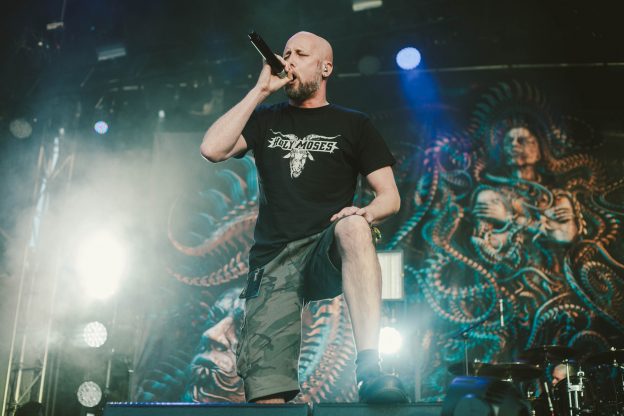The fifth annual Monster Energy Aftershock Festival was one for the books! A sold-out crowd of 50,000 attended over two days, making it California’s biggest rock festival. With three stages, 35 bands, dozens of food options, live art, and tens of thousands of dollars raised for local charities, it’s no wonder why Aftershock is so popular. Check out our photo gallery from day one featuring bands like Tool, Slayer, Anthrax and more.
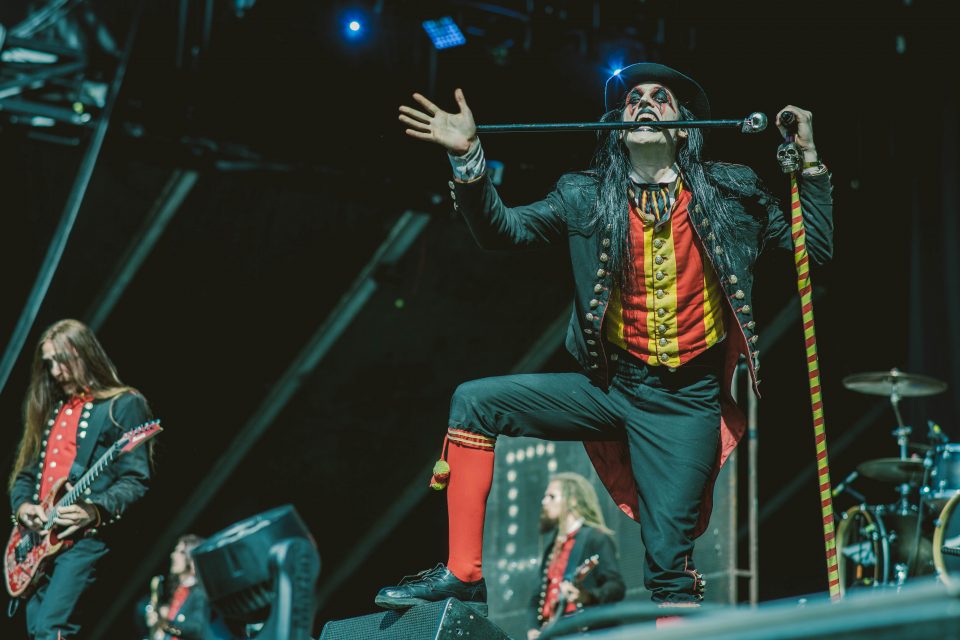
Avatar
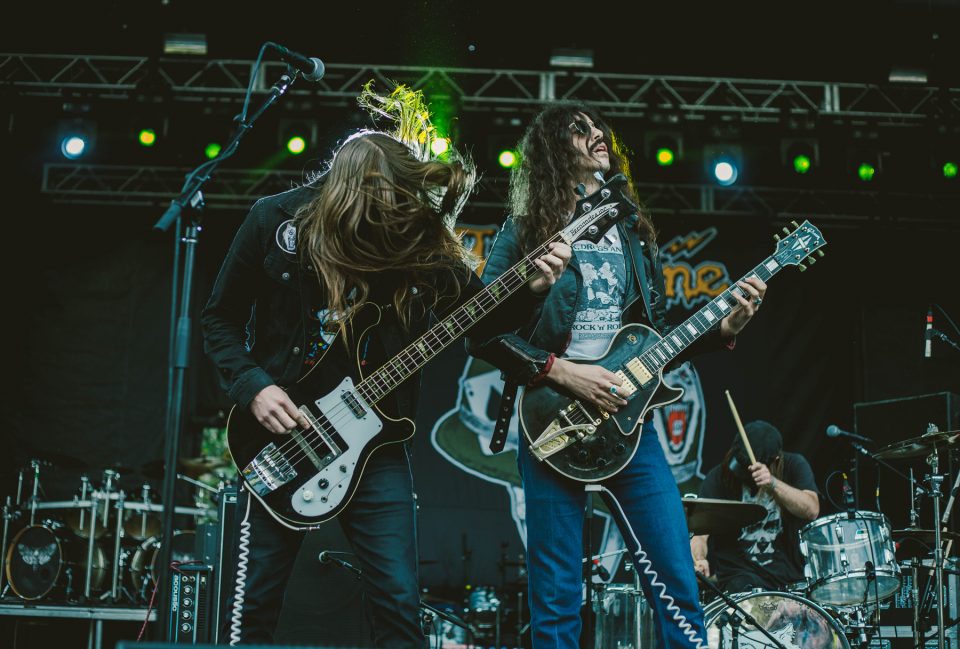
The Shrine
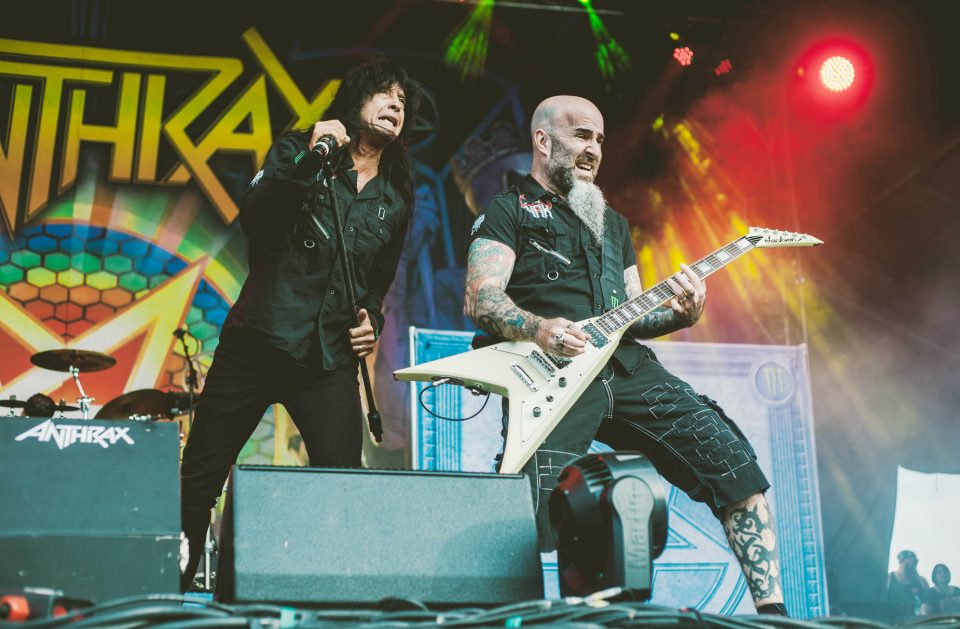
Anthrax
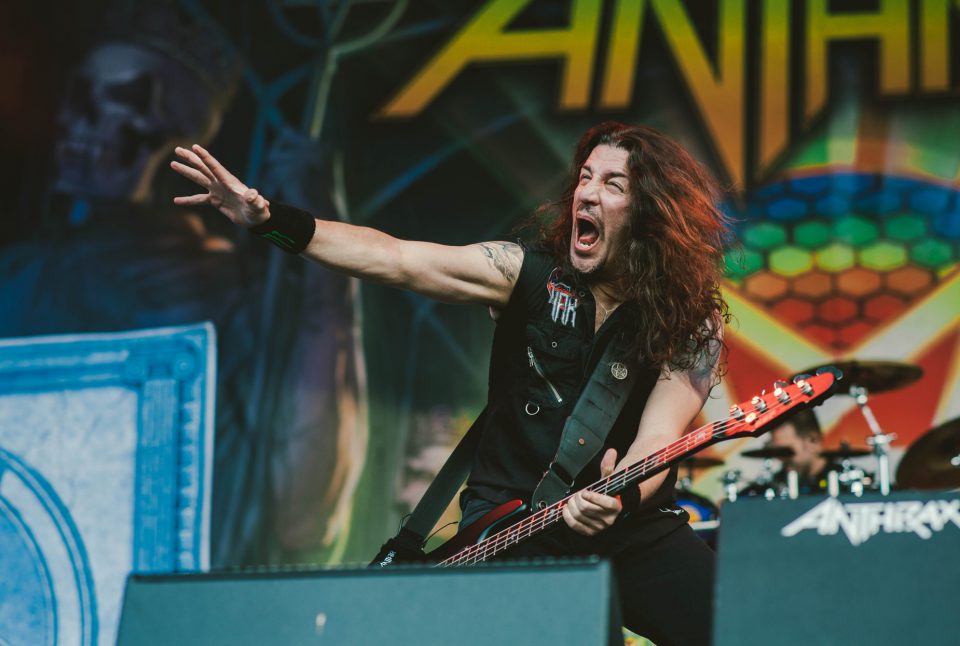
Anthrax
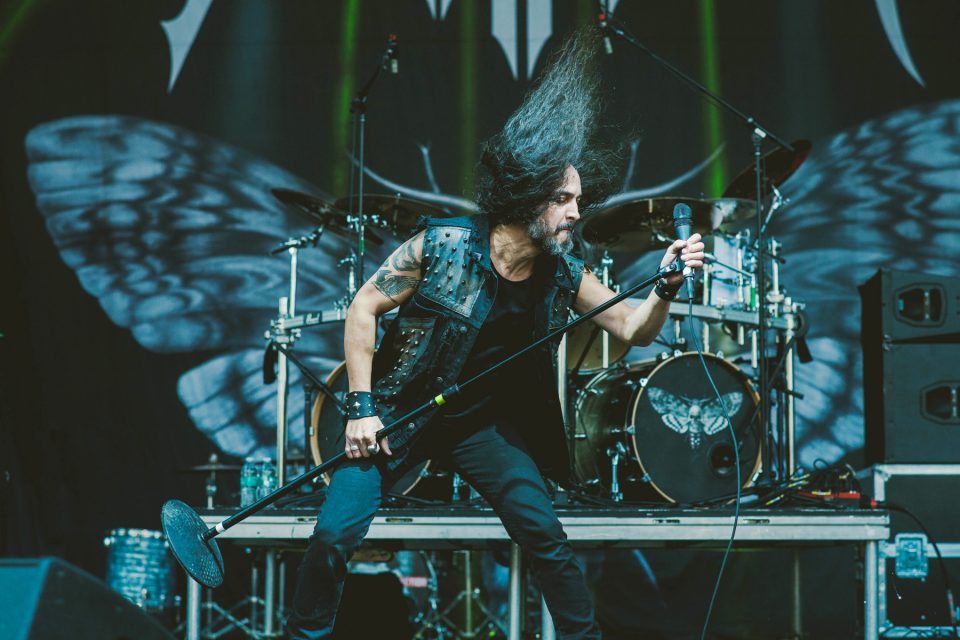
Death Angel
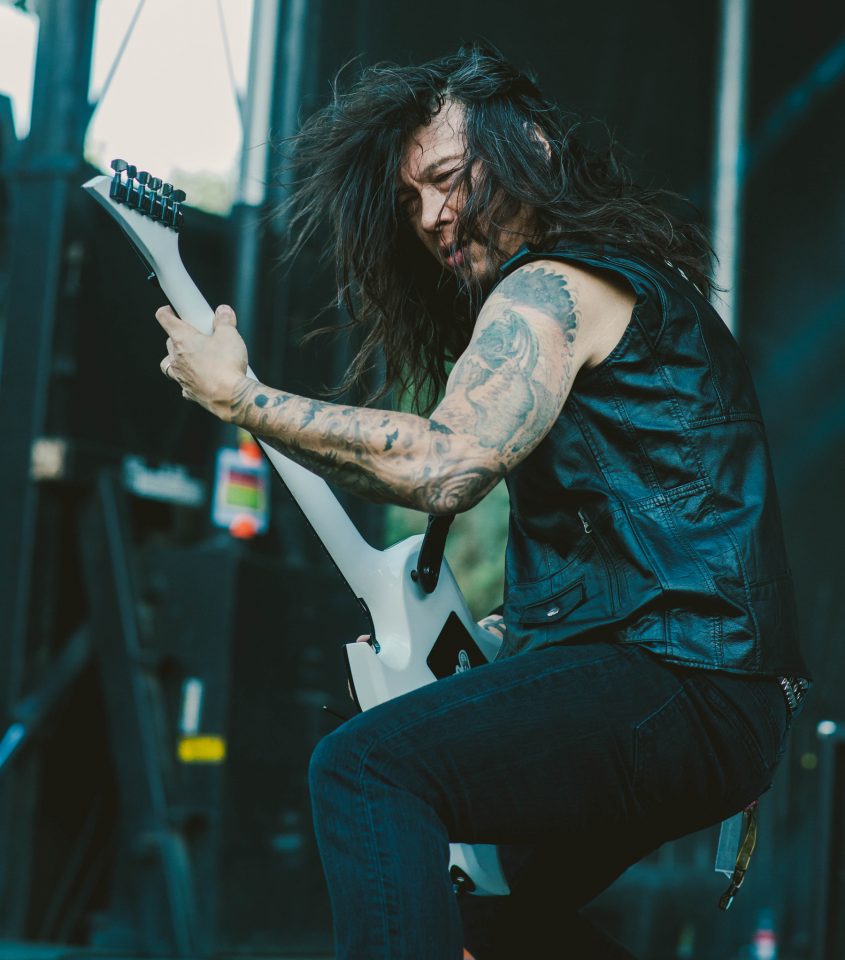
Death Angel

Aftershock 2016
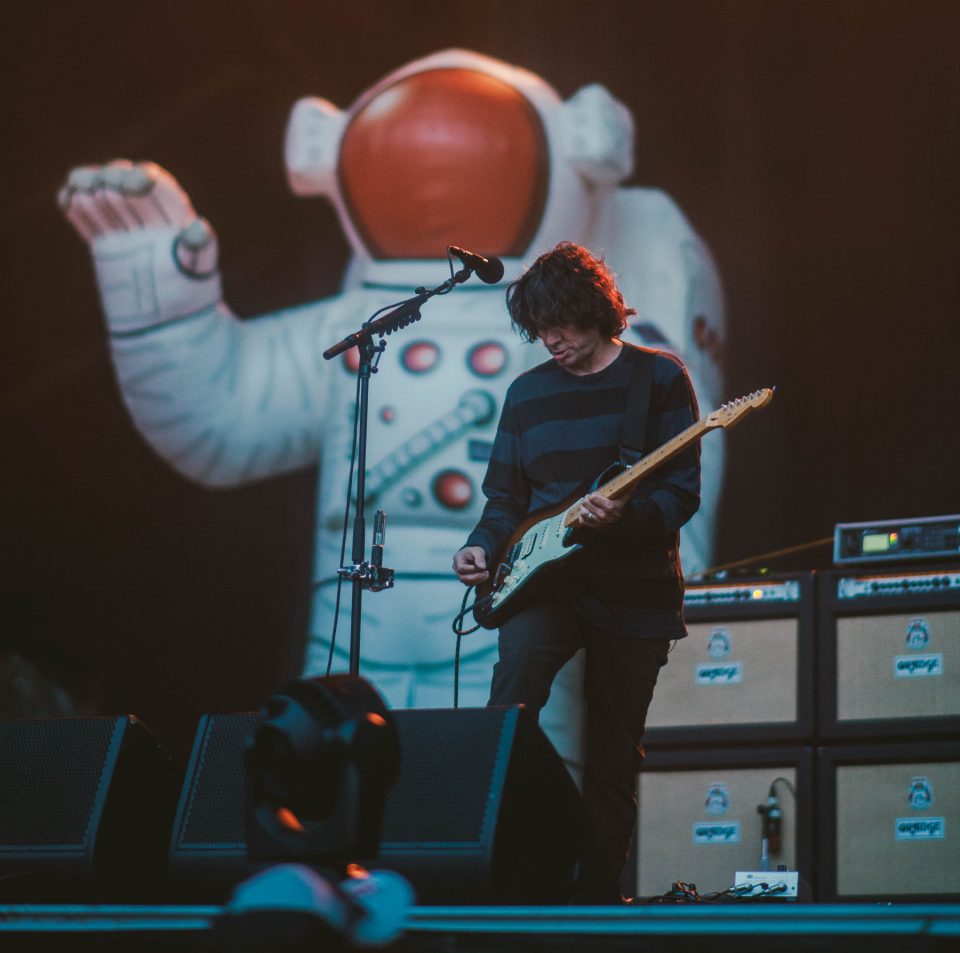
Primus
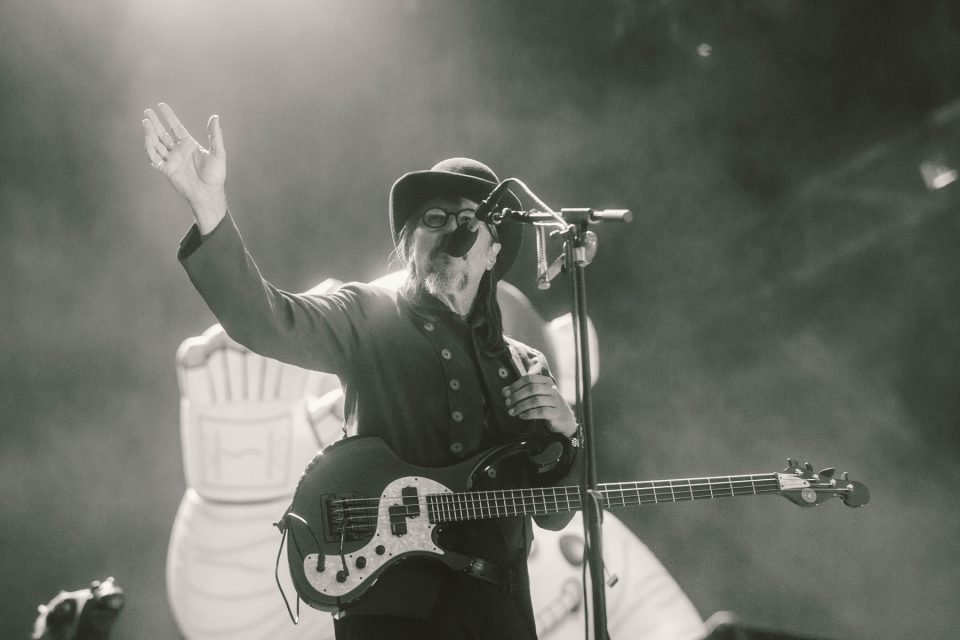
Primus

Aftershock 2016

Slayer
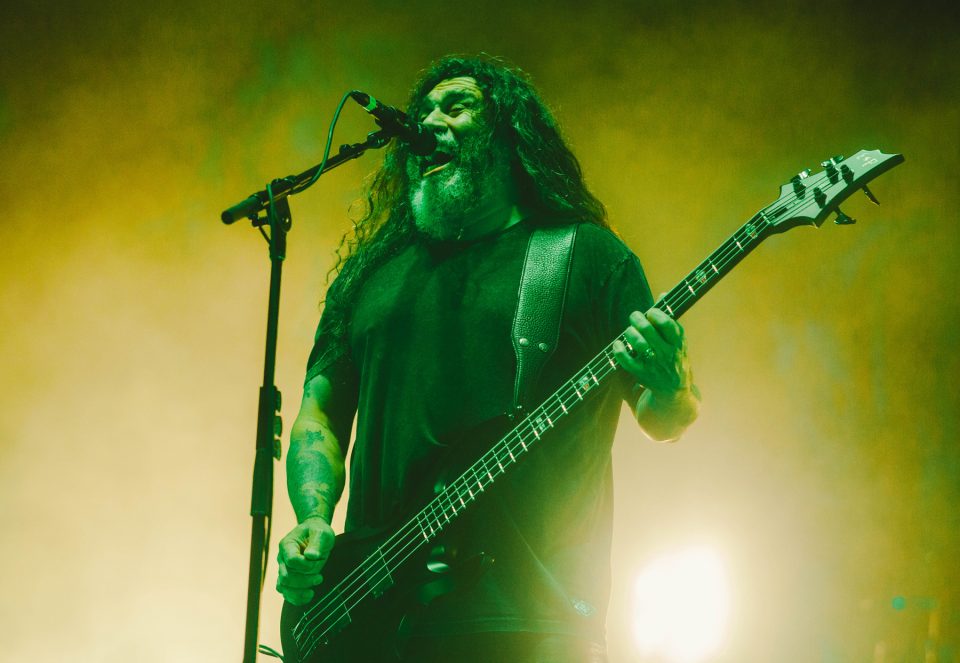
Slayer
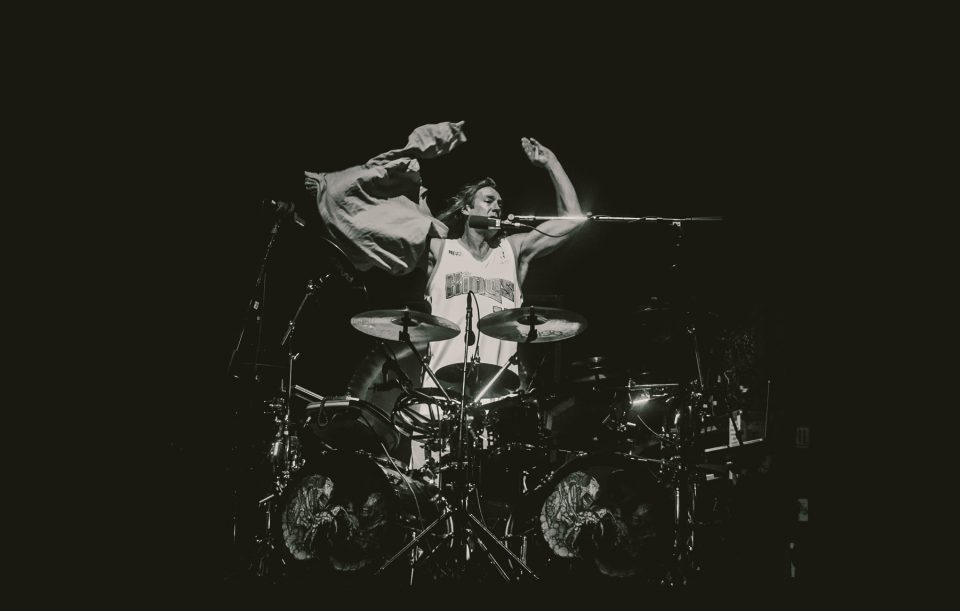
Tool

Tool

Tool
Les Claypool and His Magical Musical Potpourri
Les Claypool is a man of diverse—and some would say bizarre—tastes. Listening to the music he’s made over the years, be it with the band Primus, or now that he’s on his own, will reveal a strange brew of sounds that label owners, show promoters and even his peers have oft found difficult to categorize. Claypool’s music has been called thrash punk, progressive metal, funk rock, jam rock and everything in between. The frustrating part for those who are more comfortable with having music pigeonholed into specific scenes or genres isn’t that none of these descriptions fit, it’s that they all do.
Outside of music, Claypool has just as many different interests. The songwriter known for his character-driven songs has written a novel (South of the Pumphouse); wrote, directed and starred in a feature film, National Lampoon’s Electric Apricot: The Quest for Festeroo; and now is ready to release his first Pinot noir, Purple Pachyderm, under the Claypool Cellars wine label.
“We live in the wine country, so we figured it’d be cheaper if we just made our own,” Claypool says of his latest venture. “We made too much of it, so we’re selling it.”
He describes Purple Pachyderm as “fancy booze for not so fancy folks.” The wine is made exclusively from Russian River Pinot noir grapes and will be available in restaurants soon. Bottles will also be available shortly for general consumers, but Claypool says that with rising temperatures, the wine will not be able to be shipped until fall 2009. Known for his quirky sense of humor, Claypool says of his foray into the wine business, “It’s just something to keep me off the streets.”
Claypool’s music career has done an admirable job of that as well. His latest album, Of Fungi and Foe, is his second solo release, and his first album of all new material since 2006. The album contains songs he composed for the Mushroom Men video game for the Nintendo Wii as well as music for the Northern California-set horror film Pig Hunt.
He is also ready to once again take his music on the road, playing festivals and venues alike with artists such as Matisyahu and O’Death. In March, Claypool toured the U.S. as part of the first Oddity Faire, a tour dubbed as a “mutated mini-fest.” Claypool headlined and compiled the lineup, which featured DeVotcKa, Saul Williams and others as well as a host of circus performers. Claypool was pleased with the results, saying the tour did well, even though it took place “when no one else was doing well,” and he hopes to do a second Oddity Faire next year. Claypool reports that his summer shows—including his June 19 stop in Sacramento—won’t have a similar carnival atmosphere; however, show goers should know better than to expect any semblance of normalcy.
“My band will be just as freaky as it always is,” Claypool says.
Some of the music on Of Fungi and Foe is for a video game on the Wii called Mushroom Men. You’ve had songs you’ve written picked for video games before, but this is the first time you’ve composed new music for a game.
Yeah, this was me scoring to stills in a storyline. It’s sort of a creepy game. It’s a sci-fi game about a meteor or asteroid hitting the planet and bringing these mushroom spores to life, and they become intelligent beings and start forming all these little societies and battling each other. It’s a pretty cool little storyline.
Are there different challenges composing music for a video game? Of Fungi or Foe also contains songs you’d done for Pig Hunt. Do you have to get into the same headspace for both?
Video games are becoming—they’re not really even video games anymore. They’re interactive games. I anticipate that at some point, it won’t be linear media. We’ll have films that you’ll actually interact with, and the storylines in a lot of these games now are pretty intense. It was very much like scoring a film. The directors tend to be a little less opinionated, thought. They pretty much just let me do whatever I wanted on that one.
Is it easier for you to create without constrictions or would you rather have some kind of guidelines?
Most people tend to let me do whatever I want, because that’s just sort of the nature of the way I am. I think when people are hiring me, they know they’re getting something that’s further out of the box than most people. It’s not like I’ve done a ton of scoring, I’ve only done a couple of things, but even when I did the Robot Chicken thing or the South Park thing, they’re hiring me for my aesthetic. But I really enjoyed it, because it gives me a different jumping off point. It’s not me wandering around and saying that I’m going to write a song about a beaver or a fireman or a place or character. I’m being inspired by someone else’s imagery—someone else’s creativity.
One thing that has always struck me about your music is that your songs seem very character driven. Is that how you start a song? When you start writing, do you think up characters?
I’ve always been drawn toward music like that. Even as a kid, listening to the Beatles, my favorite songs had stories to them. I always wondered who the hell Rocky Raccoon was or “Maxwell’s Silver Hammer” and things like that. I’ve always really enjoyed that sort of thing. I always enjoyed songs that told some sort of tale, like “Amos Moses,” even musicals like Chitty Chitty Bang Bang, growing up with Disney—the old Disney. Even a lot of country music, which I was exposed to as a kid, there’s obviously a lot of folk tales within those songs. That’s what I’m drawn toward. I’m not one to write songs about drinking beers and chasing pussy, because that’s not really what I do [laughs]”¦ at least, not in a long time.
So you won’t be writing a hair metal album any time soon?
I don’t think it’s a matter of genre. It could be any type of genre. The lyrical content can be varied. There are plenty of metal bands, like Metallica back in the old days, told the tale of “The Thing That Should Not Be.” I don’t think party music is genre driven at all.
On the new album, you worked with Eugene Hutz. It seems like his vocals and your bass work would make an obvious connection. What was it like working with him, and how did you meet up?
Eugene has become a pretty good friend of mine. He had just come to the house to spend a few days. He was in-between tours, and he just came up to hang out. I have some friends from Poland who where over, and we just drank a lot. We ended up staying up all night. The next morning, getting up and going to the studio, I was going to do some recording, but we were so hung-over, I didn’t want to do any recording, so we just started drinking again. The next thing you know, we’re pushing buttons and recording a bunch of nonsense. I just picked the least nonsensical stuff and put it on the record.
You seem to have been accepted by a lot of different scenes. I have friends who are big punk rock fans, but they’ll have a few Primus albums in their collection—or hippie friends who are really into your music. Amongst your peers, do you have a lot of admirers across the spectrum?
It’s always been like that. Primus was that band, that back in the old days, we couldn’t find anyone to play with. Michael Bailey was one of our first supporters—he was a big agent for BGP and now Livenation, and I’ve known him since 1984 when he booked for Berkeley Square—and he always liked us, but he couldn’t find anyone for us to play with. We’ve played with”¦these bands that we had nothing to do with and weren’t anything like. Then along came the Chili Peppers and Fishbone, and all of a sudden, there were bands for us to play with when they came to town. We were always the band that you couldn’t really put your finger on what we were. They called us alternative, they called us progressive metal, they called us thrash punk—when we opened for U2, they called us a grunge band. There were all these different things that we don’t necessarily fit into, but we can slide in, in certain ways. That’s been good for my longevity, because I have friends who have been parts of scenes that have become very popular, and then when the scene goes away, so do they. Our audience has always been this potpourri of people. It’s always been this mixture.
Pig imagery has always seemed to surround your music. Are you going to address the swine flu thing in your music?
Am I going to address it? I’m trying to avoid it. I don’t know. I haven’t thought about it. As you’re telling me this, I’m looking at my ring—I’m wearing this ring with a pig face on it. I don’t know how pigs became so prevalent. It could be because when I was a kid—a very young kid—I became fascinated with the Pink Floyd pig. “Pigs” was my favorite Pink Floyd songs forever. It still might be, I don’t know. When I first started doing Frog Brigade, I said if I ever play with a keyboardist, I really want to play “Pigs.” So I had a keyboardist in Frog Brigade, and we learned “Pigs,” and I thought, well, shit, let’s learn the whole Animals record, and that’s how we did Animals in its entirety. I don’t know if that’s it, or just the convenience of having the Pork Soda record that opened the door to so much pig imagery. Pigs are kind of cool. I like pigs.
Yeah, pigs are great. They say they’re smarter than dogs.
Not smarter than my dog!
Les Claypool will play the Grove at the Radisson Hotel on June 19 along with Yard Dogs Road Show.
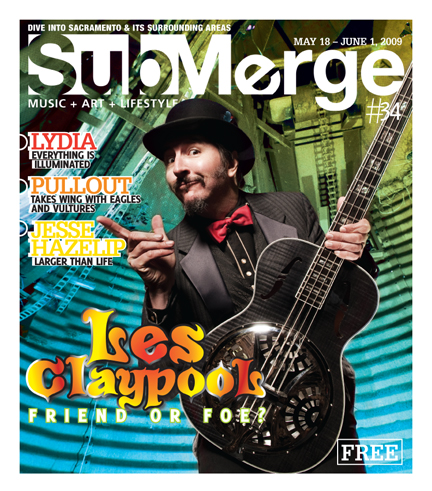
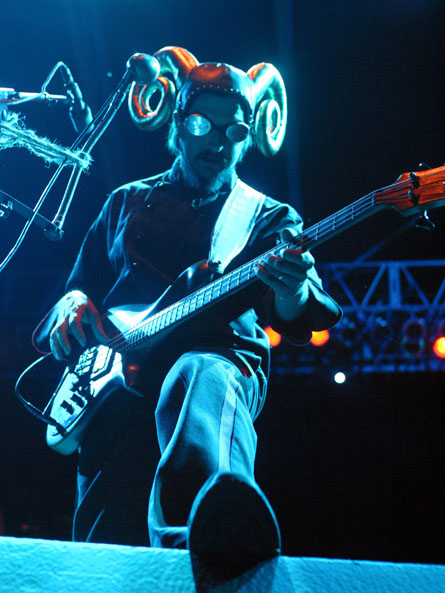
In Submerge #34, we got to speak to Les Claypool, one of the most difficult to define artists in rock music. Fittingly, our interview ran a gamut of topics, and unfortunately, not all of it could make it to print. Luckily for all of us, there’s an Internet, of which, if you’re reading this post, you’re probably somewhat aware. Here’s a few odds and ends from our chat with Les.
Submerge: Before you mentioned musicals. You’ve done a lot of different things with your music, has writing a musical something you’ve considered?
Les Claypool: I’ve thought about it. There are different albums I’ve done in the past that have had themes. Pork Soda had sort of a storyline, but I haven’t thought of doing the rock opera or a musical or anything like that. It’s not something I’ve gotten around to. If it was posed to me—I’ve talked to some writer friends about maybe doing a musical version of this or that—but it just hasn’t come about.
Would Pork Soda be the first album you’d think to make a musical out of?
At the time, it would have been. I actually had a whole treatment written for a Pork Soda animated film, and at the time, this was back when people had to draw, and it wasn’t very cost effective to do animation as it is now. I do remember actually approaching the owner of Interscope Records about doing this, and he kind of hung up the phone and was like, “What the hell is that guy talking about?” [Laughs] You know? I think it was a little too adventurous.
You’re an independent artist now, but in the ’90s, Primus was on Interscope, which is now a part of the biggest record label in the world. What was your experience like at a major label?
We were one of the first acts signed to the Interscope label, the other being Gerardo with “Rico Suave.” And thank God for “Rico Suave,” because he sold a lot of records and paved the way, so they could put out our record and not sweat it so much. I think we were the yin to that yang, or vice versa. Interscope was just an independent label with a lot of financial backing. It was a perfect place for us. I think that’s how it is with most entities. Most record companies start out as small entities, shoe companies, coffee companies—Starbucks used to be a small little entity. We just happened to get in there when they were small, and it worked out very, very well for us. I have nothing but fond memories of being on Interscope, but I just don’t think it would work for us now, because they’re a different entity, and we’re just not the kind of band that would work in that environment.
You started your Prawn Song label as an imprint on Interscope. When you did, was the plan to strike out on your own with your own label?
I started Prawn Song mainly to put out my friends’ records—guys who were spending money on demo tapes, I thought, well, shit, why don’t we just make CDs. I can get them into record stores. I don’t know if they’ll sell, but I can get that into record stores. So we did that with Charlie Hunter and Mirv. Charlie sold OK—it actually did really well for a jazz record—but the other records didn’t do so well and it just turned into a big money pit, so I just started releasing my own stuff through it. Eventually, when Primus dissolved, that was my main avenue for releasing my stuff. In this age of Internet distribution and whatnot, it’s proved to work to my advantage not to be strapped to a label. I can do what I want, whenever I want, and it works out pretty damn good.
















